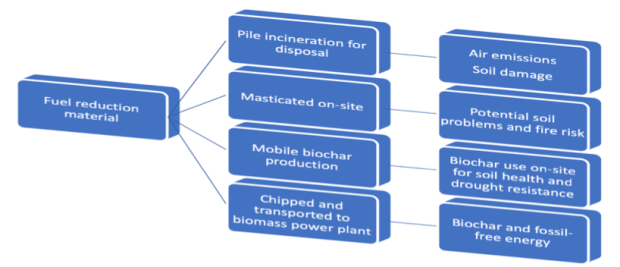USBI Briefing Paper: Biochar and Western Forests – A Win-Win Solution to Benefit Forest Restoration, Climate, and Sustainable Economies The Problem: Forest ecosystems in the Western United States are in trouble. Western forests have become degraded as a result of even-aged logging and suppression of natural fire regimes. An unnatural build-up of small diameter trees and brush has created a tinderbox in many forested areas that threatens even the large, mature trees, like redwoods, that have survived many wildfires. In recent years, programs to remove these fuels have been ramped up, but paying for the work is challenging, especially because this biomass has little or no economic value. As recently as the 1990s, there were 70 biomass power plants operating in California that provided a market for forest residuals, but today, that number has dropped to fewer than 25 facilities. The acreage of forest that needs to be treated is vast, and disposal of the waste wood is expensive and has negative impacts on forest soil. When slash is burned in piles, it destroys the organic soil underneath, increasing the potential for soil erosion. Chipping and mastication create thick piles of material that can smother forest soils when left in place. Each of these methods produces additional greenhouse gas emissions.
Learning topic
Media
Learning level
